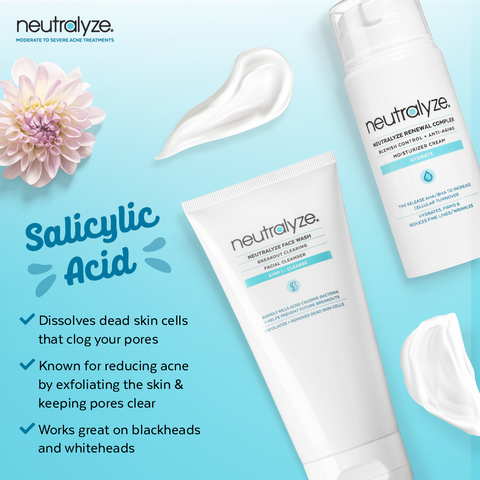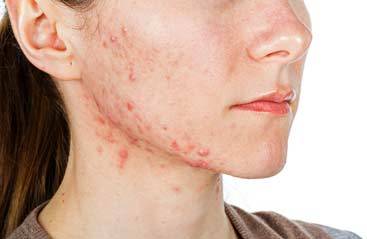Filtering Picture-Perfect Social Media Images

Social media has become a part of the everyday lives of countless people around the world. A recent report shows that as of 2020, there are approximately 3.08 billion social media users worldwide and that number is expected to keep rising in the following years.
And while this online medium has enabled faster and easier communication and has changed the way we connect with people, it has affected the way beauty is perceived, especially by the younger generation.
Through curated and edited content, social media can possibly contribute to forming unrealistic standards for beauty. The picture-perfect images we see online can seriously impact our body image and, thus, our self-esteem. Let’s understand how this happens and how you can manage how your social media feed affects you.
The Problem with Perception
In the age of online platforms where the number of followers, views, and likes is the currency, people are often compelled to share perfectly composed and filtered photos of themselves. Our newsfeed is filled with pictures of attractive models, celebrities, and influencers as well. With all these, we sometimes can’t help but feel insecure about how we look.
While there isn’t a lot of hard data available on the effects of social media on body image and beauty perception, initial studies have pointed out that there is a clear connection between them. Because we see a lot of professionally-created content with edited pictures of people, social platforms shape “ideal” beauty standards that might not only prompt self-image issues but also provoke unhealthy behaviors.
Effects on Men
The frequent exposure to what’s deemed as the “ideal male body”—sculpted jawline, rock-hard abs—can cause muscle dysmorphia, a body image disorder that causes men to think that they are weaker than they actually are. This might induce men to take unhealthy supplements or to push themselves work out beyond their body’s capacity.
Muscle dysmorphia can possibly lead to an unhealthy obsession with putting on muscle mass, with the notion that more muscle means more strength. And while a leaner and more muscular physique can be more attractive, there are certain physical risks that comes with the process of achieving it, such as frequent dehydration and starvation.
This body image problem is further accentuated by commercial ventures that use the ideal body type to promote their brands. It’s not uncommon to see muscular male models endorsing protein powder or gym equipment. This link between the ideal body type and core male values, such as confidence, strength, and sex appeal can all contribute to lower self-esteem.
Effects on Women
People in social media tend to fawn over thin or curvy women—a behavior that’s deeply connected to cultural upbringing. In the United States, for example, women are most commonly judged and praised for their appearance before anything else. This inflates the value of having good looks and diminishes important attributes, such as intelligence, humor, and kindness, and social media has furthered the problem.
Several women do their best to appear young and attractive on social platforms, with some even exerting extra effort into editing photos of themselves to appear thinner or to remove skin flaws. This can set a dangerous precedent for what an “attractive woman” is, and a number of other female social media users can also develop warped ideas of beauty along with damaging behaviors.
Effects on Teenagers
Since they are on their developmental years, teenagers are even more vulnerable to the impact of idealistic images. A study conducted over the past few years pointed out that social media sites caused feelings of depression, loneliness, and poor body positivity among people between the ages of 14-24.
This phenomenon has been dubbed “social media dysmorphia”, and it has moved people to take drastic actions to how they look. A report by ASPS showed over 40% of plastic surgeons said that people of all ages have been getting nonsurgical enhancements just to be able to take better selfies.
Teens are already exposed to environments where they have to deal with peer pressure and the risk of being bullied. The danger brought by social media dysmorphia further inhibits them from forming a strong self-image.
Filters and How They’re Used
Photo filters are meant to enhance images through tools for adjusting color, warmth, light, and sharpness and for adding special effects. Social media platforms, especially image-heavy ones like Instagram, are usually loaded with these useful features. Some applications also allow users to manually edit pictures using their mobile phones.
Editing and using filters on your photos can significantly enhance how well you look on these shots. Whenever we post great-looking pictures of ourselves, we usually garner positive reactions from our network. These reactions can be empowering, and we naturally tend to get a sense of validation from positive feedback.
However, it’s important to remember that filtered or edited pictures are usually not accurate representations of people in real life. A photo filter may be able to hide a person’s blemishes, but ultimately, this only creates the illusion of flawlessness. While there are many people who are okay with this, this kind of mindset—one that normalizes hiding imperfections—can prompt or worsen insecurities.
The Best Approach to Social Media
These issues caused by how we consume content on social media are very real threats to our mental, emotional, and even physical health. Men and women of all ages are vulnerable to these dangers.
It’s important to be aware of social media dysmorphia and to be vigilant about how we interpret what we see online. Instead of chasing unhealthy and unrealistic body goals, it would be better to acknowledge that everyone has flaws. These flaws don’t necessarily make you any less beautiful or less important as a human being.
It would be more helpful to embrace flaws rather than hide or be ashamed of them. Many are afraid to get judged, so they resort to quick fixes or underhanded tactics to win temporary victories. Once you accept your flaws and accept yourself entirely, you will be immune to the crushing pressure that social media can drive.
Of course, this doesn’t mean that you should stop taking care of your body. Keeping good fitness, skincare, and haircare routines or making healthy lifestyle changes are terrific endeavors, as long as you do these things for your well-being and not for social media validation.
When battling insecurity induced by social media, the most important thing to change is your mindset. Once you’ve solidified how you see yourself and how you consume content, you can enjoy sharing and passively scrolling without being pressured about perfection.


